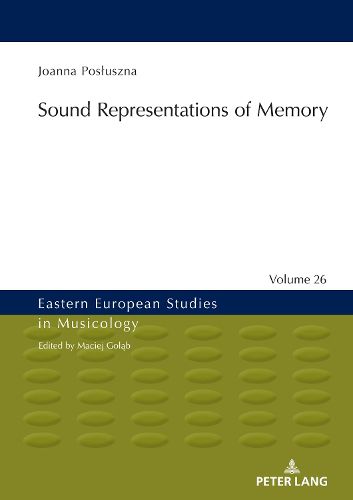Readings Newsletter
Become a Readings Member to make your shopping experience even easier.
Sign in or sign up for free!
You’re not far away from qualifying for FREE standard shipping within Australia
You’ve qualified for FREE standard shipping within Australia
The cart is loading…






This title is printed to order. This book may have been self-published. If so, we cannot guarantee the quality of the content. In the main most books will have gone through the editing process however some may not. We therefore suggest that you be aware of this before ordering this book. If in doubt check either the author or publisher’s details as we are unable to accept any returns unless they are faulty. Please contact us if you have any questions.
The author outlines how memory is treated by contemporary artists, philosophers, musicians, sociologists, musicologists, as well as victims of the Holocaust... She paints a rich landscape of how her subject features in the work of composers and their collaborators, many of whom were motivated by memories of the Occupation. With such a subject, the discussion inevitably comes round to the uneasy relationship between aesthetics and ethics. The author quotes Adorno: "Is poetry possible after Auschwitz?". The work is an answer to that question, and an affirmative one. It must be possible: to restore hope, and to invoke and sustain Memory, at least symbolically - by artistic means. Art, even when it disturbs, brings catharsis and preserves memory. The author impresses with her erudition, wealth of materials cited, musical competence and critical insights. Krzysztof Szwajgier, The Krzysztof Penderecki Academy of Music, Cracow, Poland.
$9.00 standard shipping within Australia
FREE standard shipping within Australia for orders over $100.00
Express & International shipping calculated at checkout
This title is printed to order. This book may have been self-published. If so, we cannot guarantee the quality of the content. In the main most books will have gone through the editing process however some may not. We therefore suggest that you be aware of this before ordering this book. If in doubt check either the author or publisher’s details as we are unable to accept any returns unless they are faulty. Please contact us if you have any questions.
The author outlines how memory is treated by contemporary artists, philosophers, musicians, sociologists, musicologists, as well as victims of the Holocaust... She paints a rich landscape of how her subject features in the work of composers and their collaborators, many of whom were motivated by memories of the Occupation. With such a subject, the discussion inevitably comes round to the uneasy relationship between aesthetics and ethics. The author quotes Adorno: "Is poetry possible after Auschwitz?". The work is an answer to that question, and an affirmative one. It must be possible: to restore hope, and to invoke and sustain Memory, at least symbolically - by artistic means. Art, even when it disturbs, brings catharsis and preserves memory. The author impresses with her erudition, wealth of materials cited, musical competence and critical insights. Krzysztof Szwajgier, The Krzysztof Penderecki Academy of Music, Cracow, Poland.